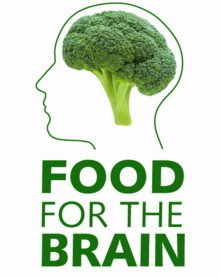
THIS ARTICLE’S PDF: Brain Power and Memory Improvement
The human mind is an extremely complex and intricate well-oiled machine very different and more advanced than computer technology. Our human brain has evolved over thousands of years to make us the most powerful (not physically, but mentally) living things on Earth. Sometimes however, it seems that it is hard for us to remember the simplest memories or associations. How our mind can be improved naturally has to do with exercise, diet, and the way in which we learn. The most important fact we need to take away is that we need to be able to move our formulations, associations, and short-term memories, into the expanded spaces of our brain where long-term memory can be stored and created. Our brain is constantly making new connections and associations and it is important for your memory to continue to make these connections to stay healthy.
The Four Laws of Memory1
The four laws are how the human brain chooses to make a long-term memory. They include and are not restricted to: association, images, intensity, and repetition. You may be familiar with two or three of those but I will quickly explain what they each mean and how they relate to your brain processes.
Association: You can improve your memory by noticing how you remember certain things. By associating an experience or an object with something very similar, it is easy for you to remember that originally hard-to-remember object.
Images: When you think of a memory, what first comes to mind? An image. Human memories are seen like a slideshow in our heads and that is why it is much easier to use vision to remember certain memories. The more senses you use however, the stronger the memory becomes.
Intensity: When thinking of important days in history, it is much easier to remember what you were doing that day than the day before or after. An example is 09.11.01 – you remember that day, but do you remember what you did on the tenth or the twelfth?
Repetition: This is the test-takers answer to a better score. Repeating facts and figures or experiences in your head can get you to memorize and store the experience in your long-term memory. Recalling a phone number after 20 times saying it can be easier that recalling it if you only said it once.
Exercise, Sleep, and Memory:
Although I am advocating exercise to improve your memory, do not exercise and study at the same time. Exercising can increase the blood flow to your brain but it also relegates a lot of blood to the working muscle. Thus, you do not have your body’s full attention, just like if you eat a large meal and the blood goes toward your stomach to help you absorb and digest the contents. Therefore, I would exercise at a given point during the day, and study after you recover or before you start, thus getting the best of both activities. Skimping on exercise is one thing, but it is absolutely essential to get enough sleep. Studying when you are tired doesn’t work and when we are at that stage our creative processes and critical thinking skills are at a minimum. Sleep is when we retain most of the information we received that day and it is when the connections and associations are made and strengthened.
 Laughter is Always the Best Medicine but Stress? I Think Not: 2
Laughter is Always the Best Medicine but Stress? I Think Not: 2
Having fun is an important activity, even to strengthen the power of your brain. In a study by Harvard researchers, the people that were the most social creatures were the ones that had the slowest memory decline. Interact with people and the more you socialize, the more you are staying active on the memory-front. Another important factor for memory improvement includes the ability to laugh. Laugh at yourself, laugh with others, and associate with people who can make you laugh!
Stress can be the biggest memory buzz-kill. Stress can kill brain cells, and that’s a fact. Activities such as yoga and meditation have recently been able to show that your brain chemistry actually changes so that you are able to have more connections in areas that bring you joy and peace, the left prefrontal cortex. Meditation can improve your body’s ability to fight off depression, anxiety, diabetes, and even high blood pressure.
Food and Memory:2
When talking about brain boosters and memory-loss preventers, omega-3 fatty acids are beneficial for your brain’s health. Also added to this list are green vegetables! Produce has antioxidants, just like red wine, that can prevent your neurons from being damaged. Leafy vegetables like spinach, broccoli, romaine, and arugula can act as brain superfoods that benefit your brain’s ability to maintain and retain memories.
As a practice that has been going on for years, many ancient civilizations used a variety of herbs to increase brain power and memory. Some of these spices include Cinnamon, Ginger, and Turmeric, all of which can be easily incorporated into your diet. Cinnamon can lighten your mood, Turmeric helps in memory improvement, and Ginger has an ingredient known as Zingerrone that defends your brain cells, aiding in memory loss prevention.1
As much as I wouldn’t want you to overly exercise this habit, caffeine actually helps to boost memory. By heightening your sense, coffee, chocolate, and soda act as a stimulant and allow your brain to retain more in a given period of time. Also to improve memory, try eating foods that have a high amount of antioxidants, fiber, vitamin B6, vitamin B12, vitamin C, iron, calcium, and healthy fats.
When talking about foods to avoid, think saturated fats. They have been linked to neuron damage and dangerous disorders such as dementia. Avoid red meat, whole milk, butter, cheese, sour cream, and ice cream, as these are all foods that are high in saturated fat. See the September 4th article, Facts About Fats: The Good, The Bad, and the Essential.
What You Can Do On Your Own to Improve Memory:
There are quite a few activities that you can do on your own or with a friend that can sharpen your senses and improve your brain power/memory. One of these is playing cards (even Monopoly DEAL) or games that challenge your brain, like Sudoku. Another is by playing an instrument. By reading the notes and making associations of sounds with notes, you are actively exercising your brain and effectively improving your memory. Another way you can improve your brain power is by taking notes by hand, rather than typing. You spend more time looking at the word you are writing and thus you can remember it better. The last and most important thing to improve memory is to drink enough water! Dehydration can cause your mental capacity to be lower and your memory to be impaired.
Closing Remarks:
As you try to figure out ways to improve your memory, sometimes we forget to perform the simplest activities that can boost your brain power. Drink lots of water, eat a good diet, exercise, and mentally challenge your brain once in a while. By strategizing, you can exercise your brain, and by focusing on living life optimistically and without stress, you can see a drastic improvement in your will to learn. For studying, association and repetition is key, and consuming stimulants in proportion are efficient memory boosters. Sleep well, eat well, exercise yourself (mentally and physically), and you will notice a boost in your brain power! Good luck!
References:
- http://andromida.hubpages.com/hub/memory-improvement-tricks
- http://www.pickthebrain.com/blog/6-foods-to-help-improve-your-brain-memory-power/
Saurin Gandhi
Creator of SGHealthyLiving




